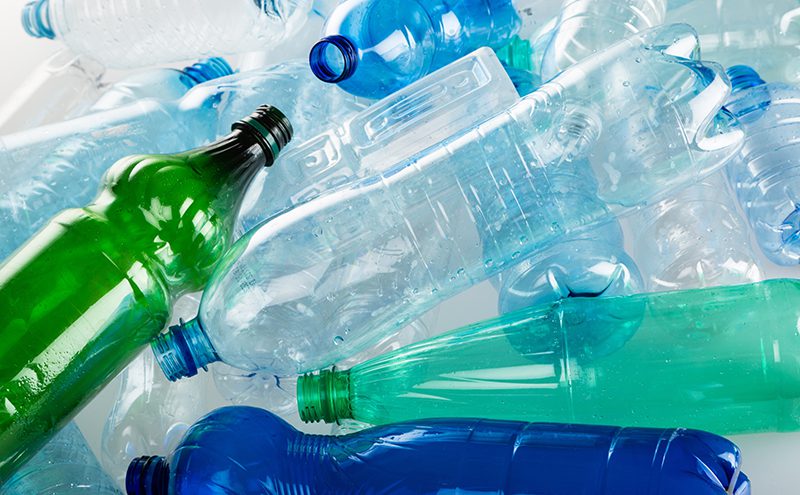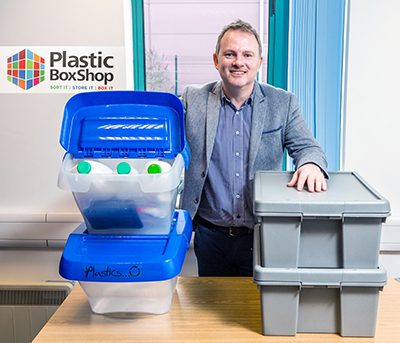
Recent months have seen a perfect storm for those responsible for dealing with waste plastic, in the combination of China’s refusal to accept waste imports at existing quality levels, and the gathering public outcry over ocean pollution. Envirotec reviews some of the government and industry responses so far, and opinion on how best to tackle it.
For all that the China ban presents an immediate crisis, with waste plastic said to be piling up at recycling facilities across the country, many observers are expressing a sense of relief that the problem is at last being confronted rather than simply exported.
At the Ocean Plastics Crisis Summit on 20 February in London, Brunel University’s Professor Edward Kosior, who also runs the recycling firm Nextek, said the UK’s long-standing export of plastics recycling to China was “scandalous”.
“We have to end this dig-use-discard mentality,” he said. “Every package that’s made should be recyclable. There’s no excuse. It is a must for all.”
Kosior’s view is one that may be seeing a groundswell of public support. Supermarkets have in any event begun to respond, with Iceland in recent weeks committing to remove plastic packaging from its own brand range, while Waitrose has pledged to banish own-brand black plastic trays by 2019.
“These are all positive responses that will help to reduce the amount of plastic waste, and we expect others to follow their lead,” said David Wilson, managing director of Vanden Recycling, a UK firm, “but we can’t lose sight of the problem: plastic that can’t be recycled easily or cost effectively.”
At 30 per cent, the current recycling rate for consumer plastic packaging is “woeful”, he said, and there can be no argument that this needs to change. The big baddie, as it were, is clearly single-use plastic – that which can’t be recycled.
“This is where new policy, legislation, design, behaviours and processes must drive change. We all need to work together to find ways of managing single use plastics out of the system.”
Kosior’s group launched a report at the Ocean Plastics Crisis Summit – Stopping Ocean Plastics an Agenda For Action – which emphasises the need to cut out single-use plastics and incentivise collection and recycling.
Therese May’s 11 January speech introducing the government’s 25-year environment plan certainly stopped well short of a ban on items like single-use plastic, opting instead for measures such as encouraging the provision of water fountains, and the extension of the 5p plastic bag charge to smaller retailers.
Greenpeace’s Louise Edge said the measures didn’t match the scale of the crisis, and amounted to a “missed opportunity” given the apparent public support for real change.
DRS dilemma
But the search for simple, guaranteed-win policy measures appears to be a little elusive. While incentivising consumers to return drinks containers via deposit return schemes (DRS) appears to work well in continental Europe, say its supporters, there still seems to be a lot of resistance from the drinks packaging industry, and many retailers appear ambivalent.
The Scottish Government signalled its intention to go ahead with a scheme in September 2017, following an earlier investigation, although the details are yet to be clarified. At the time Marks & Spencer director of sustainability Mike Barry said – speaking at the Scottish Resources Conference – that he would give the scheme his full support, but expressed concern about uncertainties such as how a DRS would work alongside kerbside collection, “a great strength of the UK compared to other places”.
He seemed cautious about piecemeal or localised solutions to problems that were complex and global, and drew an analogy with the FDA’s decision to ban hydrogenated fats which were immediately replaced with palm oil, which has been disastrous for deforestation. He said it was important to place such actions in their wider context. “Once we start running around dealing with individual issues, we run the risk of tripping ourselves up.”
Following a report issued by the Environmental Audit Committee in December, calling for DRS plans to go ahead, the government replied in late February that a decision on a DRS would be delayed until after a consultation on taxes to deter single-use plastics, which has not yet been launched although it was announced in November.
Elena Polisano, Oceans Campaigner at Greenpeace UK, commented: “This sounds like the government trying to manage expectations before doing significantly less than is necessary. We hope this isn’t the case. The damage to our oceans and the widespread contamination of our environment by plastics is going to keep getting more and more obvious until we change our approach to disposable plastic. The government can help make this change smooth and efficient, or they can waste their time and ours trying to delay things until we’ve all forgotten about plastic. But we won’t forget, and we won’t forget a government u-turn on dealing with it.”
Simplifying collection
Whether incentivised or not, consumer confusion or ignorance is clearly still a barrier to collection, and there seem to be a wide variety of initiatives geared towards getting people to put more stuff in the right bins.
WRAP launched its Recycle Now campaign on 22 February which the group said will employ a series of hard-hitting images and messages to encourage people to recycle plastic items.
In Cornwall, one group of circular economy experts is to trial a new kind of bin that is dedicated to single-use drinks containers. The “Beverage Bin”, it is hoped, will lead to increased collection rates of items like paper and plastic cups, cans, cartons, plastic bottles and lids and straws. Around 200 of the bins will be carefully sited around Cornwall for the three-month trial which runs from June to August 2018, and the data gathered will hopefully shed light on whether such an approach should be rolled out at a national level.
Driving up quality
Consumer behaviour is one factor that has a bearing on what seems to be the key issue preventing recycled plastic being used again: quality (or so say the EuPC’s members).
In January the BPF Recycling Group called for a focus on driving up quality, and proposed the creation of standards for feedstock material, which would offer advantages to businesses that are working to reduce the rate of contamination.
Incentivising firms to incorporate recycled content should also be a priority, and this could be achieved by allowing companies to offset their producer responsibility obligations if they incorporate recycled content or design their products for recycling.
It may not be happening fast enough to meet the current environmental challenges, or the requirements of Chinese waste importers, but improvements to sorting systems and technologies like infrared sorting seem to be driving quality improvements already, and this is leading to visible progress with the reuse of waste plastic.

In mid February the firm PlasticBoxShop claimed it was the first manufacturer and retailer to make and sell products from recycled household plastic waste – up till now, box makers have only used post-industrial waste. A lot of recycling companies just tended to recycle larger one-use plastic products such as cleaning bottles, milk bottles and drinks bottles, which are made from plastic types HDPE and PET. To sort smaller plastic pieces such as pots, tops and trays made from PP plastic material was too labour intensive, so this got shipped abroad. The recent improvements in infrared sorting technology has taken the labour element out of the sorting process, making it commercially viable. Nearly all the products that PlasticBoxShop sell are made from PP as it’s a very versatile and robust material, says the firm.
Gary Lyons, Managing Director and founder of Plastic Box Shop said: “Our sister company What More UK Ltd struggled at first to source regrind material made from recycled post-consumer waste. However, after working closely with a plastic recycling company to get the material to the right quality, we have managed to not only start producing boxes made from at least 95% waste but make a box that is extremely durable.”
The UK Government’s 25-year environment plan appears to recognise the quality issue, and commits to funding r&d to support new materials and recycling innovations. Similarly, the EU’s 16 January announcement of a new strategy in relation to plastics and the circular economy, earmarks €100 million for research and innovation. Wilson of Vanden Recycling suggested such innovation might hold the key to the problem. The UK already has the infrastructure to handle all its recyclable waste at present, but we need to stop “trying to recycle the unrecyclable”.








